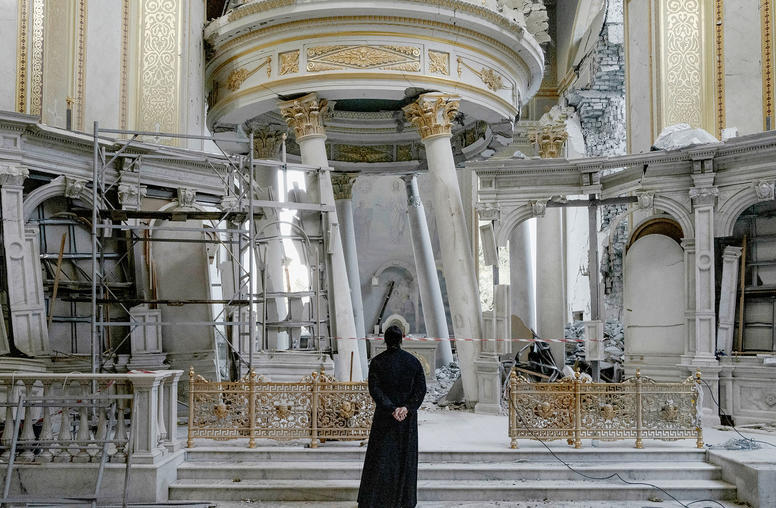Religious Actors in Formal Peace Processes
Despite the significant impact—both real and potential—that religious actors and communities can have on formal peace processes, there is little research on or analysis of their engagement as part of these processes. This report aims to remedy this deficit by examining whether, when, how, and to what extent religious actors have been engaged in formal peace and political transition processes.

Summary
Religious actors can make a significant contribution to formal peace and political transition processes. These actors have considerable influence not only within their own constituencies but also over public opinion generally. As seen in peace processes and political transitions over the past 30 years, this influence can both enhance and undermine peacemaking and peacebuilding efforts and formal negotiation processes. At present, however, this potential for peace is underutilized.
Religious actors can be involved in all phases of formal peace processes or political transition processes, participating in a wide array of modalities and performing a variety of functions. Religious actors are most likely to engage in formal peace activities when their own communities are affected by a conflict. They also can be involved externally, often as mediators.
Many cases in which religious actors are involved in formal peace and political transition processes are not conflicts directly over religious issues or differences but conflicts in which the parties are divided along ethnoreligious lines. In these contexts, religious actors have been highly trusted and respected by the parties involved, and religious values and ideas have proved important in political mobilization toward peace.
The inclusion of religious actors can generate greater buy-in and increase the likelihood of reaching a negotiated settlement, and in turn increase the chances of achieving sustainable positive peace. When opposed to a particular peace process, religious actors can mobilize themselves, their constituencies, and public opinion in opposition to it.
Factors that enhance the peacemaking and peacebuilding effectiveness of religious actors include their legitimacy, their status as representatives of powerful and often well-resourced societal organizations, and their relationship to the state. In light of these advantages and the influence religious actors can exert, peace process mediators, facilitators, support actors, and donors should systematically identify and engage key religious actors who are or can be mobilized for peace and support their efforts. At the same time, it is important to be aware of religious figures and groups who could be potential spoilers and to explore ways to mitigate that danger.
About the Report
This report presents a qualitative analysis of whether and how religious actors can influence formal peace processes. Originating from collaboration between the United States Institute of Peace, Inclusive Peace, and the International Center for Religion and Diplomacy, it draws on Inclusive Peace’s database, academic and policy research, and a series of regional consultations with religious actors involved in peacemaking and peacebuilding and other peace practitioners.
About the Authors
Alexander Bramble is a researcher and analyst at Inclusive Peace. S. Ayse Kadayifci-Orellana is a research affiliate at the Georgetown Institute for Women, Peace and Security and an adjunct professor at Georgetown University. Thania Paffenholz is the executive director of Inclusive Peace and a senior fellow at the Centre on Conflict, Development and Peacebuilding at the Graduate Institute in Geneva.



